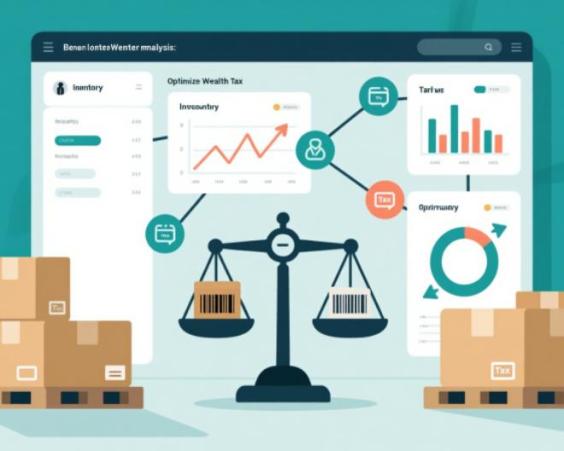Perpetual Inventories vs. Periodic Inventories: Advantages and Disadvantages
Inventory management is a critical aspect of any business that handles physical products. There are two main methods for keeping track of inventory: Perpetual Inventory and Periodic Inventory. Each has its own advantages and disadvantages, and the choice between them will depend on the specific needs and characteristics of your business. In this article, we will explore both methods to help you decide which one is best for you.
What are Perpetual Inventories?
The Perpetual Inventory system is a method of management where each inventory transaction is recorded in real-time. This means that every time a sale is made, a product is received, or an inventory adjustment is made, the available quantities are automatically updated.
Advantages of Perpetual Inventories
Accurate and Up-to-Date Control:
- By recording transactions in real-time, you always have a clear view of the current inventory, making it easier to make decisions and plan.
Error Reduction:
- By automating the recording process, human errors associated with manual data entry are minimized.
Quick Detection of Losses or Discrepancies:
- Discrepancies between theoretical and physical inventory can be detected almost immediately, allowing for a quick response.
Better Integration with Other Systems:
- Perpetual inventory systems usually integrate well with other business systems such as accounting and sales management, making it easier to maintain consistency and automation.
Disadvantages of Perpetual Inventories
High Initial Cost:
- Implementing a perpetual inventory system can require a significant investment in software and hardware, as well as training for personnel.
Requires Constant Maintenance:
- Since it is based on automation, the system requires ongoing technical maintenance to ensure its proper functioning.
Complexity of the System:
- For small businesses or those with few transactions, the complexity of the system may outweigh the benefits, making this method not the most suitable.
What are Periodic Inventories?
The Periodic Inventory system involves conducting physical counts of inventory at regular intervals (e.g., weekly, monthly, or annually). Between these counts, no detailed record of inventory entries and exits is kept.
Advantages of Periodic Inventories
Simplicity:
- This method is easier to implement and understand, especially for small businesses with a limited volume of transactions.
Low Initial Cost:
- No expensive software or advanced technology is required for implementation. It is ideal for businesses that are starting out or have limited resources.
Less Dependence on Technology:
- Since it does not rely on automated systems, this method is less vulnerable to technical failures or the need for continuous maintenance.
Disadvantages of Periodic Inventories
Limited Visibility of Inventory:
- Between physical counts, you do not have a clear view of inventory, which can lead to problems such as overstocking or understocking.
Higher Probability of Errors:
- Since inventory is not updated in real-time, significant discrepancies between recorded and physical inventory can occur, affecting decision-making.
Concentrated Labor Effort:
- Physical counts can be labor-intensive and require significant effort, especially for businesses with a large volume of products.
Loss of Information:
- Without a detailed record of transactions, it is more difficult to track problems such as losses, theft, or inventory management errors.
Which Method is Best for Your Business?
The choice between Perpetual Inventories and Periodic Inventories depends largely on the size, complexity, and specific needs of your business.
- Perpetual Inventories are ideal for businesses with a high volume of transactions, a high product rotation, and that want to maintain strict and real-time control over their inventory.
- Periodic Inventories may be more suitable for small businesses or those with a limited volume of products, where the cost and complexity of a perpetual system are not justified.
Both methods have their merits, and the final decision should be based on a careful evaluation of your operational needs, budget, and ability to manage the chosen inventory system.
Picking the right method for managing your inventory is crucial for the success of your business. A good inventory system can improve efficiency, reduce costs, and enhance customer satisfaction. Evaluate your options carefully and choose the method that best fits your operations and business goals.





